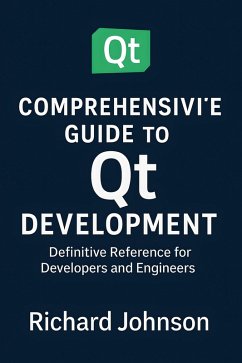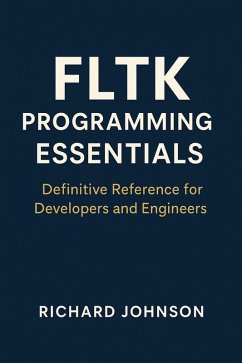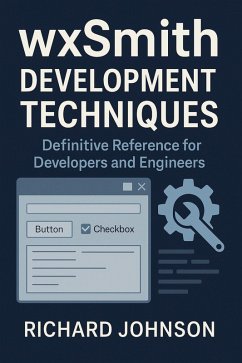
GTK+ Development Techniques (eBook, ePUB)
Definitive Reference for Developers and Engineers
Sofort per Download lieferbar
8,59 €
inkl. MwSt.

PAYBACK Punkte
0 °P sammeln!
"GTK+ Development Techniques" "GTK+ Development Techniques" delivers a comprehensive, modern exploration of the GTK+ toolkit, equipping software professionals with both foundational knowledge and advanced strategies for desktop application development across Linux, Windows, and macOS. From the evolution of GTK+ and its close integration with the GObject type system and GLib, to granular memory management, threading, and event-driven architecture, this book offers an authoritative guide to building robust, efficient, and responsive user interfaces. Readers will gain a deep understanding of core...
"GTK+ Development Techniques" "GTK+ Development Techniques" delivers a comprehensive, modern exploration of the GTK+ toolkit, equipping software professionals with both foundational knowledge and advanced strategies for desktop application development across Linux, Windows, and macOS. From the evolution of GTK+ and its close integration with the GObject type system and GLib, to granular memory management, threading, and event-driven architecture, this book offers an authoritative guide to building robust, efficient, and responsive user interfaces. Readers will gain a deep understanding of core internals, including the signal system, lifecycle management, and state-of-the-art concurrency practices, empowering them to create sophisticated cross-platform applications. The book systematically addresses every essential dimension of GTK+ programming, with extensive coverage of widget hierarchies, data modeling, and Model-View-Controller design patterns, complemented by practical guidance on internationalization and accessibility. Step-by-step chapters outline advanced customization through CSS theming, drawing and graphics via Cairo and OpenGL integration, dynamic event handling, and responsive multimedia interfaces. Real-world techniques for integrating external data, managing asynchronous updates, ensuring portability across windowing systems, and leveraging device-specific APIs ensure that developers can deliver seamless end-user experiences. Recognizing the critical importance of performance, extensibility, and security, "GTK+ Development Techniques" highlights state-of-the-art profiling, debugging, automation, and deployment methodologies. Coverage extends to plugin architectures, scripting, safe resource management, sandboxing, and future-proofing applications within the evolving GNOME ecosystem. Whether you are modernizing legacy software or designing the next generation of cross-platform desktops, this book is an indispensable reference for mastering GTK+ development at an expert level.
Dieser Download kann aus rechtlichen Gründen nur mit Rechnungsadresse in A, B, BG, CY, CZ, D, DK, EW, E, FIN, F, GR, H, IRL, I, LT, L, LR, M, NL, PL, P, R, S, SLO, SK ausgeliefert werden.













